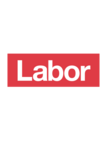The 2002 Victorian local elections were held on 16 March 2002 to elect the councils of 17 of the 78 local government areas in Victoria, Australia.[1]
| |||||||||||||||||||||||||||||||||||||||||||||||||||||||||||||||||||||||||||||
| Registered | 560,000+ | ||||||||||||||||||||||||||||||||||||||||||||||||||||||||||||||||||||||||||||
|---|---|---|---|---|---|---|---|---|---|---|---|---|---|---|---|---|---|---|---|---|---|---|---|---|---|---|---|---|---|---|---|---|---|---|---|---|---|---|---|---|---|---|---|---|---|---|---|---|---|---|---|---|---|---|---|---|---|---|---|---|---|---|---|---|---|---|---|---|---|---|---|---|---|---|---|---|---|
| |||||||||||||||||||||||||||||||||||||||||||||||||||||||||||||||||||||||||||||
Until 2008, local elections in Victoria were conducted periodically, meaning 53 councils were not up for election in 2002.[2] The City of Melbourne was initially scheduled to hold its election in 2002, but it was instead brought forward to 22 July 2001 following a change to its electoral structure.[3]
All elections were conducted by the Victorian Electoral Commission with the exception of the City of Moreland, which conducted its own election.[4]
The elections saw significant success for The Greens. The sole council up for election that had a Greens councillor was the City of Yarra, after Gurm Sekhon won an October 2001 by-election in Nicholson Ward. An additional four Greens councillors were elected in Yarra − including future party leader and MP Greg Barber − as well as Stephen Hart in Colac Otway and Fraser Brindley Moreland.[1]
The Socialist Party ran three candidates in Yarra, receiving 3.5% of the vote across the council area.[5]
27 candidates were elected unopposed across the state, 24 of which were independents.[1]
Results edit
Council votes edit
| Party | Votes | % | Swing | Seats | Change | ||
|---|---|---|---|---|---|---|---|
| Independents | 455,160 | 81.76 | 124 | 7 | |||
| Labor | 56,771 | 10.20 | 19 | 4 | |||
| Liberal | 20,804 | 3.74 | 5 | 2 | |||
| Greens | 17,951 | 3.22 | 6 | 6 | |||
| Independent Labor | 4,328 | 0.77 | 1 | 1 | |||
| Socialist | 988 | 0.18 | +0.18 | 0 | |||
| Socialist Alliance | 714 | 0.13 | +0.13 | 0 | |||
| Total | 556,725 | 100.0 | 155 | ||||
| Informal votes | |||||||
| Turnout | |||||||
Council control edit
| Party | Councils | ||
|---|---|---|---|
| Number | Change | ||
| Independent | 14 | 1 | |
| No overall control | 1 | 1 | |
| Labor | 2 | ||
Aftermath edit
Labor retained control of the City of Darebin and gained control of the City of Moreland, but lost control of the City of Yarra as a result of Greens, Independent Labor and independent gains.[1]
In addition to retaining two wards in Boroondara, the Liberal Party gained two seats in Greater Bendigo − Greg Williams (Eppalock) and Kevin Gibbins (Whipstick).[6][7] A fifth Liberal councillor (Geoff White in Glenelg) was re-elected unopposed.[8]
Following the elections, the amount of LGAs expanded from 78 to 79 when the Shire of Delatite was split into the Rural City of Benalla and the Shire of Mansfield.[9]
Notes edit
References edit
- ^ a b c d "Local council election results timeline". Victorian Electoral Commission. Archived from the original on 2017-03-03.
- ^ "VOTING METHOD FOR THE 2008 COUNCIL ELECTIONS" (PDF). City of Melbourne. Archived from the original (PDF) on 2023-11-02.
- ^ "Council, mayor and lord mayor history". City of Melbourne.
- ^ "Election Results". Trove. Moreland City Council.
- ^ "Australia: Yarra Council – One in five people vote socialist across city". Committee for a Workers' International.
- ^ "Bendigo councillor to seek Liberal federal preselection". ABC News.
- ^ "Councillor Kevin Gibbins mourned". The Bendigo Advertiser.
- ^ "Tracking Victorian Crs who are members of a political party". The Mayne Report.
- ^ Royce Millar & Jason Dowling (25 April 2004). "Kennett's blitz a decade on". The Age. theage.com.au.


